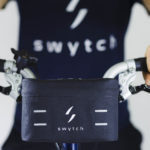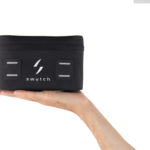Hi,
I've not had to replace a controller in many years, not since Em3ev stopped selling them. I've only ever used 20a/9 fet Infineon controllers bought from them which were compatible with a MAC 12t hub motor with a 52v battery. I recently bought a 26-32a controller on Amazon that I thought would be suitable but although it works fine on the flat it pretty much drops to a standstill on big hills. Could this be due to a max current that is less than my motor draws on a hill?
Can anyone recommend a controller that would be more suitable?
Thanks in advance.
Justin
I've not had to replace a controller in many years, not since Em3ev stopped selling them. I've only ever used 20a/9 fet Infineon controllers bought from them which were compatible with a MAC 12t hub motor with a 52v battery. I recently bought a 26-32a controller on Amazon that I thought would be suitable but although it works fine on the flat it pretty much drops to a standstill on big hills. Could this be due to a max current that is less than my motor draws on a hill?
Can anyone recommend a controller that would be more suitable?
Thanks in advance.
Justin










